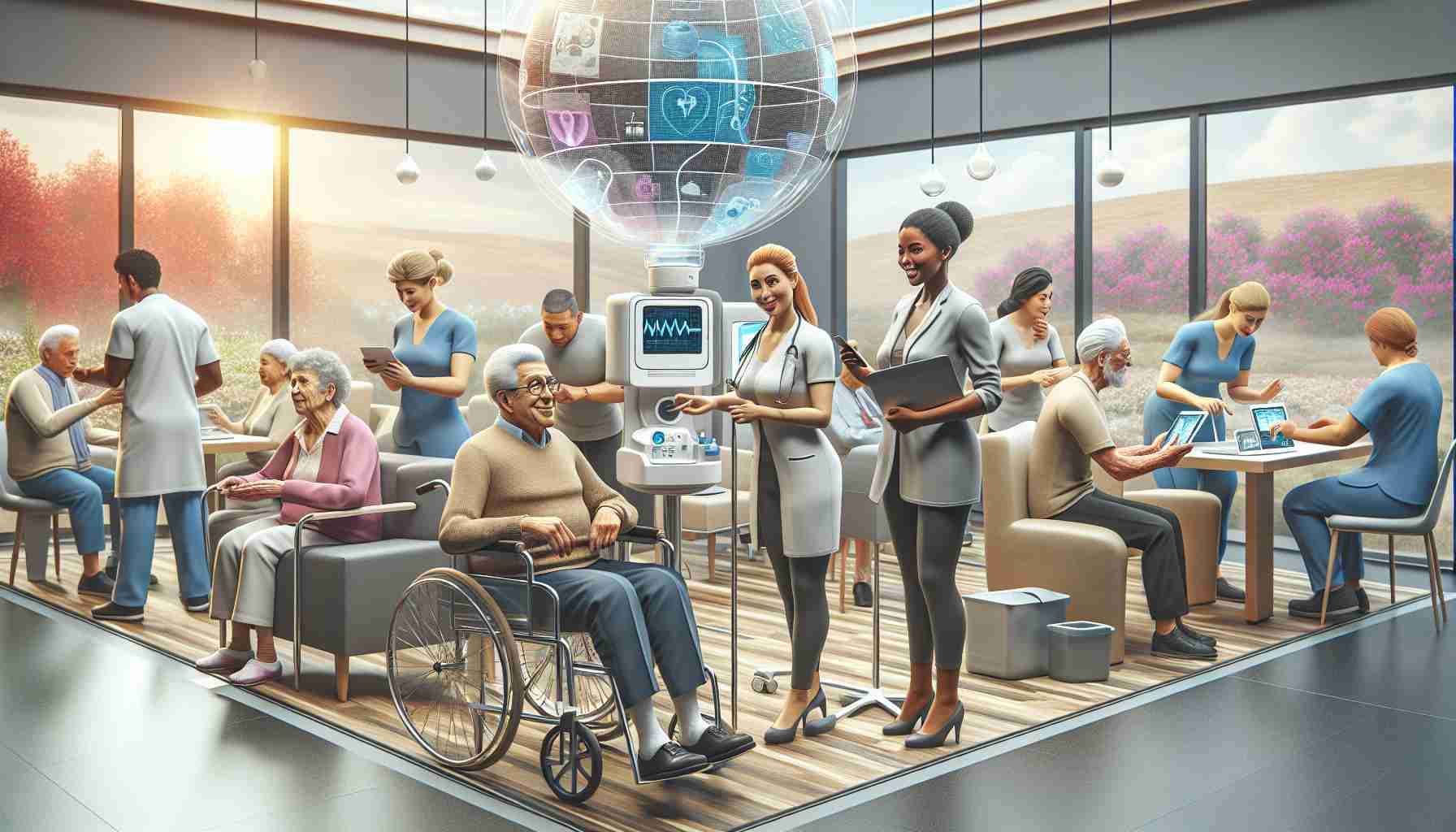A Fresh Approach to Home-Based Healthcare Services
Lorell Upchurch, with a rich background in the healthcare industry, embarked on a unique journey to alter the landscape of healthcare access for seniors. Rather than conforming to traditional norms, Lorell saw a gap in the system and founded a pioneering venture that catered to the specific needs of the elderly population.
Enhancing Accessibility and Convenience
Recognizing the struggles faced by seniors with mobility issues in accessing essential medical services, Lorell’s brainchild brings healthcare directly to their doorsteps. By offering mobile phlebotomy services, True Vine Screening eliminates the need for arduous travels to medical facilities, ensuring that individuals can receive vital screenings in the comfort of their own homes.
Empowering the Elderly Community
Through fostering personal connections and providing tailored care, True Vine Screening goes beyond offering medical services – it uplifts the spirits of those it serves. Lorell’s dedication to impacting the community positively shines through, as she remains committed to making a real difference in the lives of her clients.
Looking to the Future
As True Vine Screening continues to flourish, Lorell Upchurch’s vision of revolutionizing healthcare for seniors only grows stronger. By combining clinical expertise with compassionate care, she paves the way for a new era of home-based healthcare services that prioritize individual needs and comfort.
For those seeking a transformative approach to healthcare, True Vine Screening stands as a beacon of hope and innovation. To learn more about this groundbreaking service, visit their website at www.truevinescreening.com or reach out at 610-602-4857.
Expanding Healthcare Options for Seniors
Amidst the evolving landscape of healthcare access for seniors, it is essential to explore additional facets that contribute to revolutionizing services for this demographic. One pertinent question that arises is: How can technology play a role in enhancing healthcare access for seniors?
Embracing Technological Advancements
In today’s digital age, telemedicine emerges as a pivotal tool in extending healthcare services to seniors, particularly those in remote areas. Utilizing online platforms and video conferencing, healthcare providers can conduct virtual consultations, monitor patients’ health remotely, and even deliver prescriptions directly to their homes. This innovative approach not only increases access but also promotes convenience for seniors who may face challenges with mobility.
Addressing Socioeconomic Disparities
While advancements in healthcare technology offer promising solutions, it is crucial to acknowledge the existing socioeconomic disparities that can hinder seniors’ access to care. Financial constraints, lack of internet access, and limited digital literacy among some older adults may pose significant barriers to leveraging telemedicine services effectively. How can we ensure equitable access to these technological innovations for all seniors, regardless of their socioeconomic status?
Advantages and Disadvantages
The integration of technology in healthcare access for seniors presents various advantages, including improved convenience, reduced travel burdens, and enhanced monitoring of chronic conditions. However, challenges such as privacy concerns, digital divide issues, and the potential for misinterpretation of virtual consultations must also be considered. Striking a balance between embracing technological advancements and addressing associated challenges is paramount in ensuring comprehensive and equitable healthcare access for seniors.
Challenges and Controversies
One of the key challenges associated with revolutionizing healthcare access for seniors lies in maintaining a human touch amidst the growing reliance on technology. While virtual consultations offer convenience, some seniors may prefer face-to-face interactions with healthcare providers for a more personalized experience. Balancing the benefits of technology with the importance of human connection remains a critical consideration in enhancing healthcare services for the elderly population.
By exploring a multidimensional approach that encompasses both technological innovations and a human-centered focus, the healthcare industry can continue to advance in catering to the diverse needs of seniors. Navigating the complexities of adopting new technologies while preserving essential aspects of the patient-provider relationship calls for thoughtful consideration and strategic implementation.
For further insights into the intersection of healthcare and technology in serving seniors, visit HealthcareAccessForAll.com for comprehensive resources and perspectives on this transformative journey.
